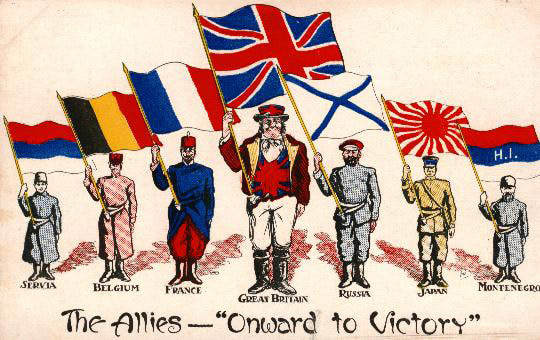|
Vladimir Putin says Ukrainians and Russians have been one people since the early Middle Ages, when Kyiv was a Russian capital. Ukrainians say after centuries of rule by Mongols, Poles, and Russians, their time has come for self-rule. Putin in turn claims Russians in Ukraine need protection. It's all colored by the ambiguous ideal of one nation, one state.
The notion that each people should govern itself seems so obvious that it’s hard to realize it’s relatively new. As late as 1914, in central and eastern Europe and beyond, most folks lived in multi-ethnic empires. Rulers and nobles might speak one language, urban merchants a second, and peasants a third. This began to break down in the 1800s as social mobility increased. Small principalities combined to form German and Italian nation-states. Ethnic minorities in the Austro-Hungarian, Russian, and Ottoman empires pressed for autonomy. Then a Bosnian Serb nationalist shot a Habsburg archduke and set off World War I. After the war, a new map of Europe broke the old empires into smaller states based on language, ancestry, culture, and religion. Each people would rule itself. Trouble is, barring isolation or genocide, populations mix. To create ethnic majorities is to create new minorities. They too may demand independence, in smaller and smaller units. The century since World War I has been filled with ethnic conflict. If ethnic self-determination doesn’t bring unity and a sense of belonging, what does? For Ukraine, I'm at a loss. For the U.S., the best I can suggest is a shared national culture based not on ancestry but on our founding principles, such as equality under the law, a free press, due process, and the right to life, liberty, and the pursuit of happiness.
2 Comments
3/7/2022 07:20:00 pm
Absolutely. There has to be a rule of law governing what constitutes statehood and then requiring others to honor it. I stand by the notion that Woodrow Wilson's ideal of ethnic-based nationalism has an inherent flaw. Followed to its logical conclusion, it would splinter provinces and neighborhoods and even households. Putin purported to justify his invasion on the basis of nationalism, saying Russia had to "protect" the ethnic Russians in Ukraine. Putin is clearly the aggressor. But I don't know of a general rule, or even principle, that approves South Sudan, or Bangladesh, or Eritrea having broken away from Sudan or Pakistan or Ethiopia respectively and rejects ethnic-minority regions in other countries breaking away. The decisions aren't always made by peaceful votes like in Scotland or Quebec.
Reply
Leave a Reply. |
AuthorI'm a historian who writes novels and literary nonfiction. My home base is Madison, Wisconsin. Archives
July 2024
|

 RSS Feed
RSS Feed